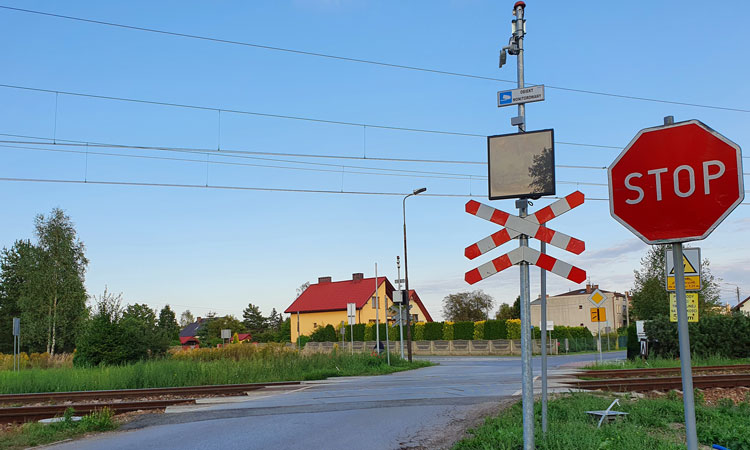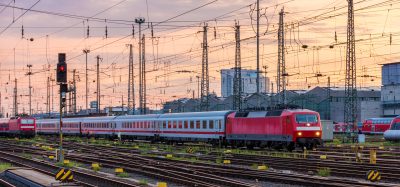Poland advances integrated railway network plans with major expansion and modernisation by 2035
Posted: 3 October 2025 | Gabriel Higgins | No comments yet
Poland’s Integrated Railway Network project, led by CPK and PLK, will expand by over 2,000 km by 2035, enhancing connectivity across regions and Europe.


Poland has entered a new stage in planning its Integrated Railway Network (ZSK), a long-term project to expand and modernise the national rail system. The initiative is being led by Centralny Port Komunikacyjny (CPK) together with PKP Polskie Linie Kolejowe (PLK), under the Ministry of Infrastructure.
Poland’s railway advances
The project has now moved from consultation to detailed analysis, with experts examining around 10 possible scenarios for how Poland’s railway could develop beyond 2035. Current findings suggest the network will expand by more than 2,000 km of new lines, with around 1,000 km to be completed by 2035. This significantly exceeds the earlier CPK “spokes” model, which focused on routes radiating from Warsaw.
Maciej Lasek, Government Plenipotentiary for CPK, said: “ZSK is a project that unites rather than divides. The previous monocentric ‘spokes’ model would not have been optimal for Poland. What we need are more cross-regional connections that reflect the way people actually live and travel.”
According to Deputy Infrastructure Minister Piotr Malepszak, the new approach will ensure that by 2035 all subregional and larger cities in Poland are connected to the rail network. He explained: “Regions need connections to each other, not just to Warsaw. Our analyses show at least 2,000 km of new lines are required – half of them by 2035.”
The consultation phase has already been extensive, with meetings held in all 16 regional capitals, expert workshops and contributions from more than 700 participants. These included local officials, transport operators, universities, logistics firms and defence-related institutions. For the first time, two government think tanks, the Centre for Eastern Studies (OSW) and the Institute of Urban and Regional Development (IRMiR), also took part.
Piotr Rachwalski, CPK Board Member for Railway Investments, said: “We developed several scenarios through wide consultations. Now they are being tested in detail, and we are working closely with PLK to ensure compatibility with the existing network.”
Key facts show the scale of ambition. Around 8,000 km of potential new lines are currently under analysis. At least 2,000 km of new rail are planned, with 1,000 km delivered by 2035. By that year, Poland’s network is expected to reach 20,000 km in total. Major projects include the “Y” line Warsaw – CPK – Łódź – Poznań/Wrocław, cross-border links such as Katowice – Ostrava, and upgrades like Rail Baltica (Ełk – Trakiszki). After 2035, expansion will continue with high-speed, long-distance and regional rail. Final ZSK recommendations are expected in the first quarter of 2026.
“This project is not about cancelling existing investments,” stressed Malepszak. “On the contrary, it is about building on them to create a coherent, modern and resilient rail network for Poland and Europe.”
The wider CPK project is a strategic investment designed to form the transport, logistics and mobility backbone of Central Europe. By integrating air, rail and road networks, it aims to remove barriers, drive development and improve services for society. Construction of the CPK passenger terminal is due to begin in 2026, with deep foundation piling, while the underground railway station and tunnel are scheduled for completion by 2029. The airport itself is set to open by the end of 2032, alongside the first section of high-speed rail connecting Warsaw and Łódź.
Stay Connected with Global Railway Review — Subscribe for Free!
Get exclusive access to the latest rail industry insights from Global Railway Review — all tailored to your interests.
✅ Expert-Led Webinars – Gain insights from global industry leaders
✅ Weekly News & Reports – Rail project updates, thought leadership, and exclusive interviews
✅ Partner Innovations – Discover cutting-edge rail technologies
✅ Print/Digital Magazine – Enjoy two in-depth issues per year, packed with expert content
Choose the updates that matter most to you. Sign up now to stay informed, inspired, and connected — all for free!
Thank you for being part of our community. Let’s keep shaping the future of rail together!
Related topics
European Rail Traffic Management System (ERTMS), High-Speed Rail, Infrastructure Developments, Passenger Experience/Satisfaction, Regulation & Legislation, Route Development, Sustainability/Decarbonisation, Technology & Software, The Workforce
Related organisations
Centralny Port Komunikacyjny (CPK), Centre for Eastern Studies (OSW), Institute of Urban and Regional Development (IRMiR), Ministry of Infrastructure, PKP Polskie Linie Kolejowe (PLK)








